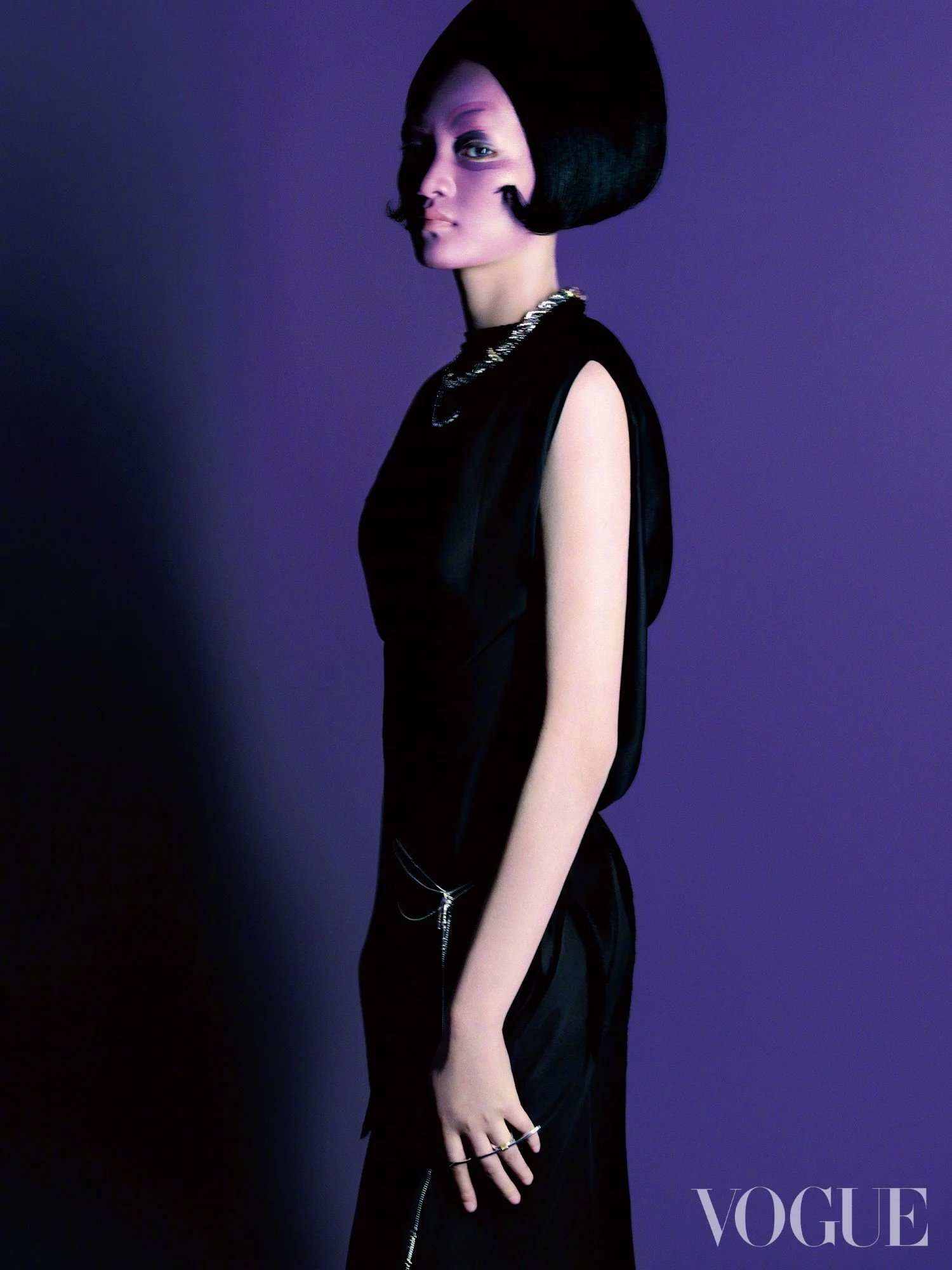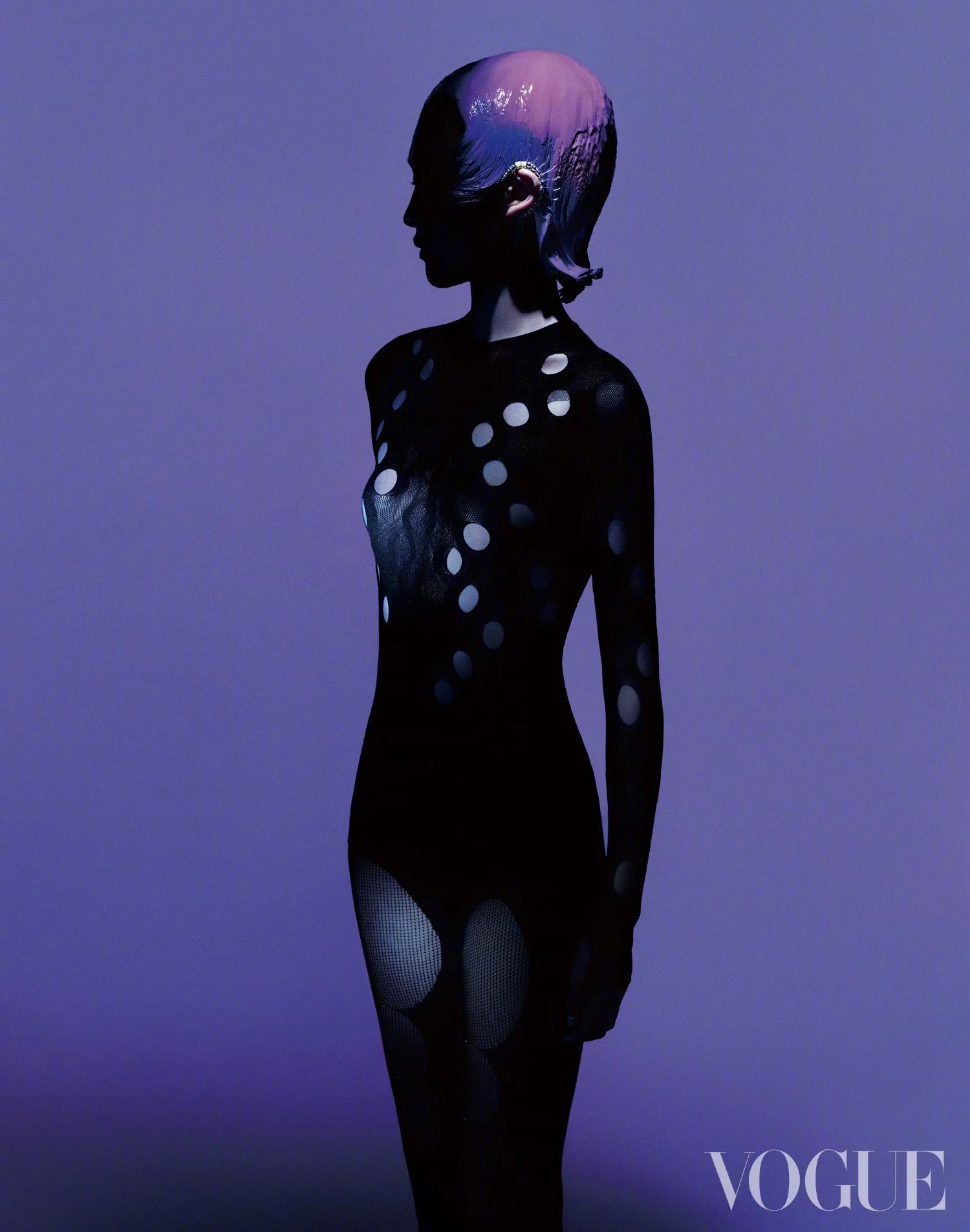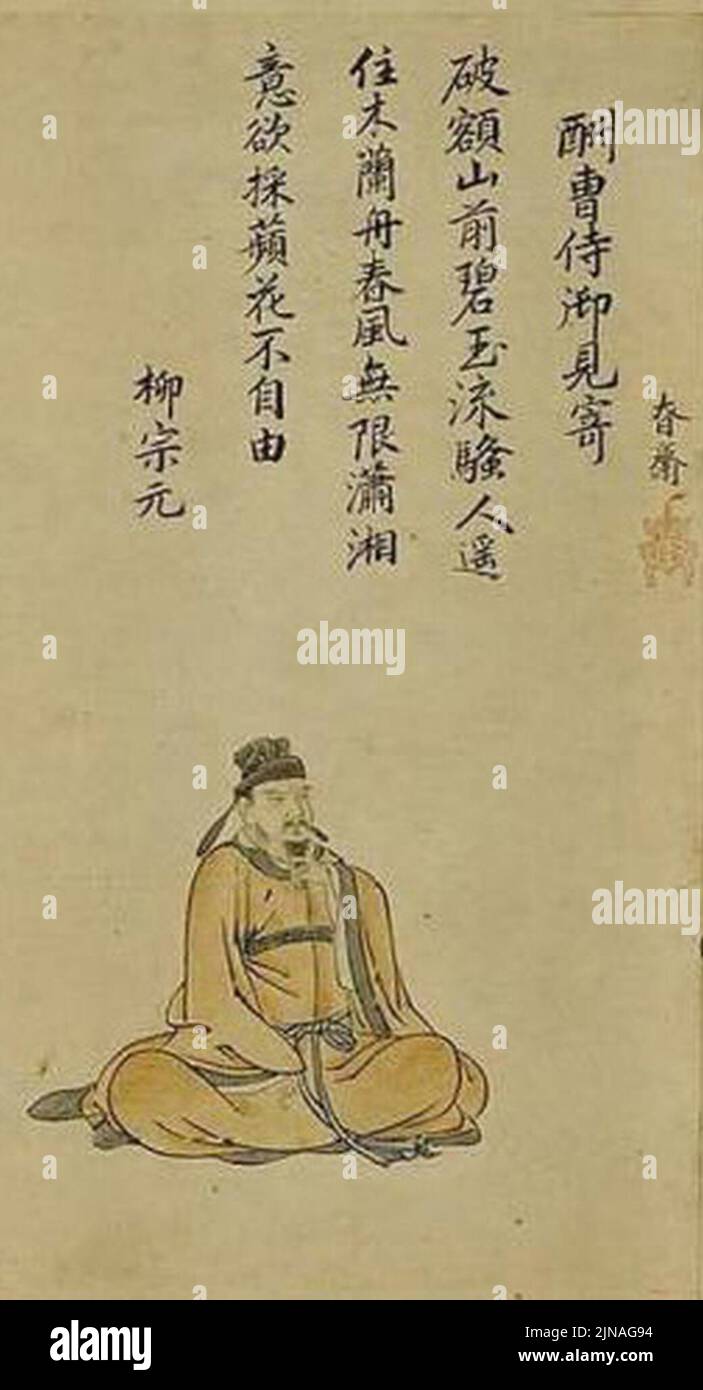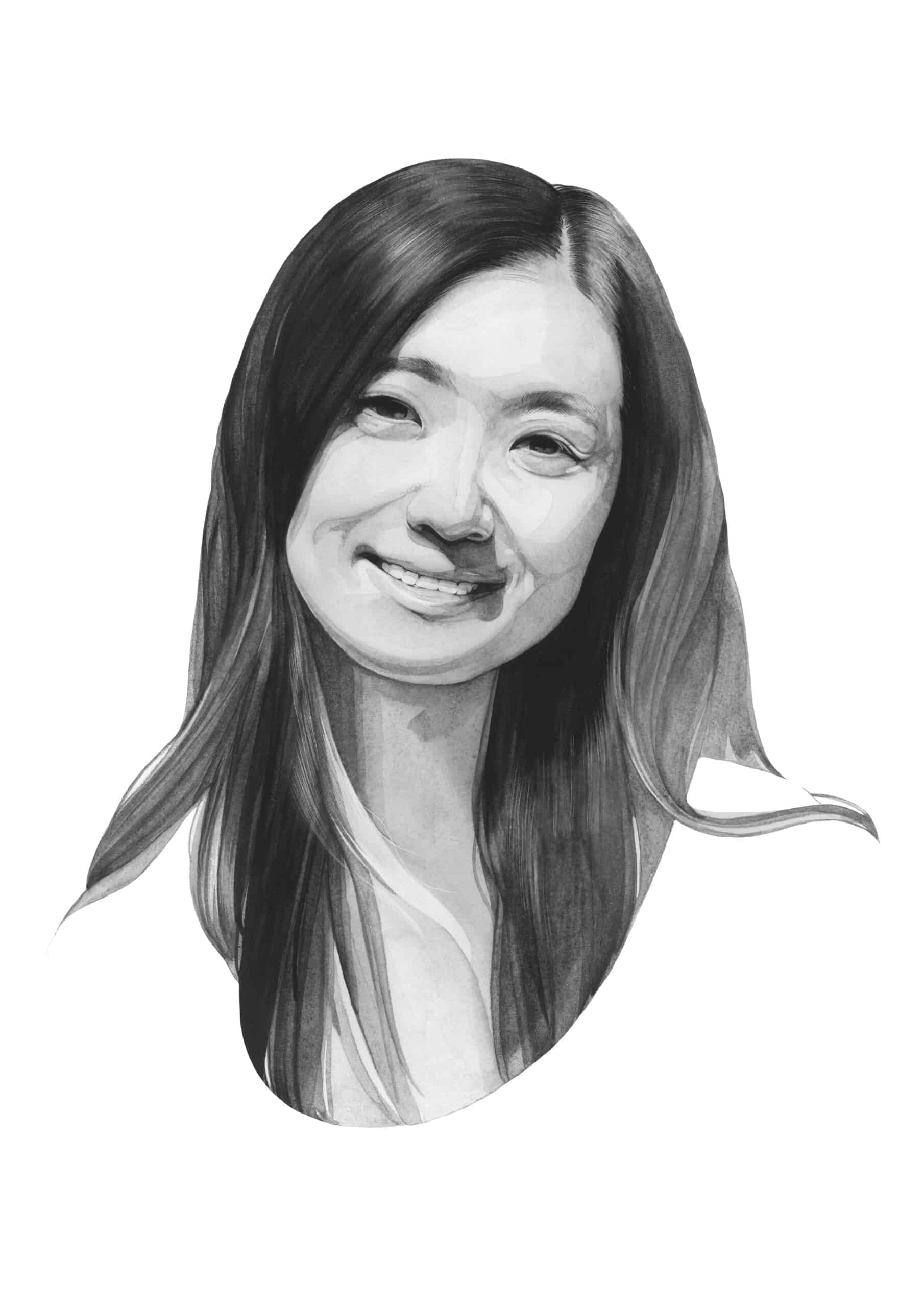Liu Zongyuan (Chinese: 柳宗元; pinyin: Liǔ Zōngyuán; 773 – 28 November 819),courtesy name was Zihou (子厚), was a Chinese philosopher, prose writer, poet, and politician who lived during the Tang dynasty. Liu was born in present-day Yongji, Shanxi. Along with Han Yu, he was a leader of the Classical Prose Movement in Tang. He is traditionally recognized as one of the "Eight Great Prose Masters of the Tang and Song".
Biography
Liu Zongyuan's civil service career was initially successful; however, in 805, he fell out of favour with the imperial government because of his association with a failed reformist movement. He was exiled first to Yongzhou, Hunan, and then to Liuzhou, Guangxi, where he eventually became the city Governor. A park and temple in Liuzhou is dedicated to his memory. His exile allowed his literary career to flourish: he produced poems, fables, reflective travelogues and essays synthesizing elements of Confucianism, Taoism and Buddhism.
He died in 819.
Works
As a most distinguished Tang prose writer alongside Han Yu, Liu Zongyuan excelled in biography, travelogue, and fable. His biographies shed light on overlooked commoners such as the snake catcher, the tree planter, the carpenter, and the shepherd boy. Besides the argument he was trying to make through character portraits, the biographies were rich in story telling and exhibited features of the Chuanqi.
Liu's best-known travel pieces are the Eight Records of Excursions in Yongzhou (永州八記).
Around 180 of his poems are extant, of which five were collected in the anthology Three Hundred Tang Poems. Some of his works celebrate his freedom from office, while others mourn his banishment. One of his most famous poems is "Jiangxue" (江雪), translated into English as "River Snow" or "Winter Snow". The poem has been an inspiration for many works of Chinese painting.
Liu Zongyuan wrote Fei Guoyu (simplified Chinese: 非国语; traditional Chinese: 非國語, Argument against the Harangues of the Various States), a criticism of Guoyu. In response, Liu Zhang (劉 章, c. 1095–1177); Jiang Duanli (simplified Chinese: 江端礼; traditional Chinese: 江端禮); and Yu Pan (Chinese: 虞槃 fl. 1300), Yu Ji's (虞 集, 1272–1348) younger brother, wrote texts titled Fei Fei Guoyu (simplified Chinese: 非非国语; traditional Chinese: 非非國語; Argument against the Argument against the Harangues of the Various States) in opposition to Liu Zongyuan's essay.
See also
- Classical Chinese poetry
- List of Three Hundred Tang Poems poets
- Tang poetry
References
Works cited
- Chen, Jo-shui, Liu Tsung-yüan and Intellectual Change in T'ang China, 773–819, Cambridge: Cambridge University Press, 1992. ISBN 0521419646.
- Nienhauser Jr., William H.; Hartmann, Charles; Crawford, William Bruce; Walls, Jan W.; Neighbors, Lloyd, Liu Tsung-yüan, New York: Twayne Publishers Inc., 1973.
- Owen, Stephen (2010). "The Cultural Tang(650–1020)". In Owen, Stephen (ed.). The Cambridge history of Chinese literature. Vol. 1. Cambridge: Cambridge university press. ISBN 9780521855587.
- Ueki, Hisayuki; Uno, Naoto; Matsubara, Akira (1999). "Shijin to Shi no Shōgai (Ryū Sōgen)". In Matsuura, Tomohisa (ed.). Kanshi no Jiten 漢詩の事典 (in Japanese). Tokyo: Taishūkan Shoten. pp. 113–115. OCLC 41025662.
- Zhang, Xuezhong, ed. (2019). 唐宋八大家文观止(Tang Song Badajia Wen Guanzhi) [Selected and Annotated works of the Eight Masters of the Tang and Song] (in Chinese). Xi'an: Shanxi renmin jiaoyu chubanshe. ISBN 978-7-5450-6404-9.
- Zhang, Yi (2003). Luo, Zongqiang; Chen, Hong (eds.). 中国古代文学发展史 - 中 (Zhongguo gu dai wen xue fa zhan shi) (1st ed.). Tianjin: Nan kai da xue chubanshe. ISBN 7-310-01915-6.
External links
- Liu Zongyuan in Wengu textbase, five poems in traditional Chinese arrayed with Bynner's translation.
- Works by or about Liu Zongyuan at the Internet Archive
- Works by Liu Zongyuan at LibriVox (public domain audiobooks)
- Books of the Quan Tangshi that include collected poems of Liu Zongyuan at the Chinese Text Project:
- Book 350
- Book 351
- Book 352
- Book 353

.jpg)
.jpg)

